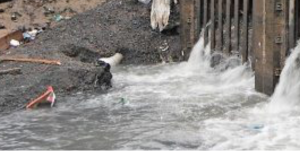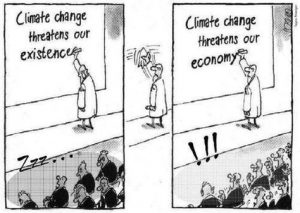 The non-governmental organizations and institutions dedicated to climate mitigation and adaptation have long been the backbone of efforts to curb greenhouse gas emissions, develop sustainable technologies, and build resilient communities. However, the chilling effect of Donald Trump’s climate policies has cast a shadow over this critical work, obstructing progress at a time when urgent action is needed more than ever.
The non-governmental organizations and institutions dedicated to climate mitigation and adaptation have long been the backbone of efforts to curb greenhouse gas emissions, develop sustainable technologies, and build resilient communities. However, the chilling effect of Donald Trump’s climate policies has cast a shadow over this critical work, obstructing progress at a time when urgent action is needed more than ever.
Trump’s systematic dismantling of climate policies—ranging from withdrawing the U.S. from the Paris Agreement to rolling back emissions standards and cutting climate research funding—has created a hostile environment for those working in climate science, renewable energy, and environmental advocacy. With government leadership retreating, NGOs and private organizations face increased challenges in securing funding, influencing policy, and mobilizing public support for meaningful climate action.
Yet reducing global greenhouse gas emissions remains urgent. By reversing its climate policies, the U.S. is not only losing valuable time but actively accelerating the depletion of its remaining carbon budget. As climate models have long predicted, predictable climate-related disasters—wildfires, hurricanes, droughts, and sea-level rise—are arriving sooner and with greater intensity.
Continue reading “The Chilling Effect of Trump’s Climate Actions on the Climate Community”

 It’s important to take a moment in the midst of the current political turmoil to consider what‘s really at stake. What we’re seeing from the Trump White House may be a symptom of the breakdown occurring as the new Administration tries to turn back the clock in several critical areas—climate, equity, foreign aid, and public service—while pursuing global triumphalism. But the consequences of a world economy built on fossil fuels, mass consumerism, and conventional agriculture are unavoidable. We need to understand that we are in the midst of collapse, and that chaos and conflict will only accelerate it. Here’s what even ChatGPT recognizes to be the situation we face.
It’s important to take a moment in the midst of the current political turmoil to consider what‘s really at stake. What we’re seeing from the Trump White House may be a symptom of the breakdown occurring as the new Administration tries to turn back the clock in several critical areas—climate, equity, foreign aid, and public service—while pursuing global triumphalism. But the consequences of a world economy built on fossil fuels, mass consumerism, and conventional agriculture are unavoidable. We need to understand that we are in the midst of collapse, and that chaos and conflict will only accelerate it. Here’s what even ChatGPT recognizes to be the situation we face. After almost ten years of concerted advocacy, New Jersey’s C-PACE law is finally being amended to make it actually usable by municipalities and commercial property owners to limit their carbon emissions, save money, and create new jobs and opportunities in local communities. While it will still be a number of months before the NJ Economic Development Authority (NJEDA) issues rules and guidelines, the passage of the new bill (A2374/S1953) is a major milestone in NJ’s commitment to meaningful climate action.
After almost ten years of concerted advocacy, New Jersey’s C-PACE law is finally being amended to make it actually usable by municipalities and commercial property owners to limit their carbon emissions, save money, and create new jobs and opportunities in local communities. While it will still be a number of months before the NJ Economic Development Authority (NJEDA) issues rules and guidelines, the passage of the new bill (A2374/S1953) is a major milestone in NJ’s commitment to meaningful climate action.



